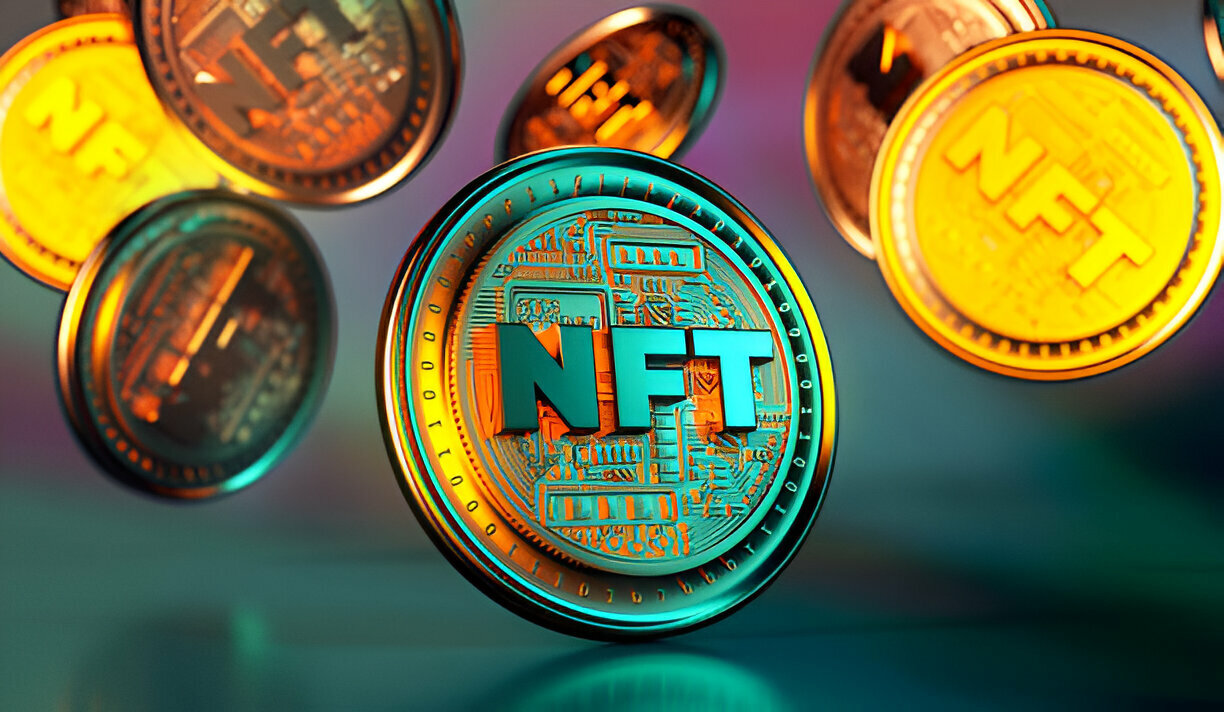Cryptocurrency Wallets: Keeping Your Digital Assets Safe

In the rapidly evolving world of digital currency, security remains paramount. Whether you’re a tech enthusiast or a beginner investor, understanding how to keep your digital assets safe is crucial. Cryptocurrency wallets are the backbone of this security. But what exactly are they, and how can you use them effectively? In this blog post, we’ll explore everything you need to know about cryptocurrency wallets, their importance, the different types available, and best practices for keeping your digital assets secure.
What is a Cryptocurrency Wallet?
A cryptocurrency wallet is a digital tool that allows you to store and manage your digital assets, such as Bitcoin, Ethereum, and other cryptocurrencies. Unlike a traditional wallet that holds physical money, a cryptocurrency wallet stores your private keys—secure digital codes known only to you and your wallet—that give you access to your cryptocurrencies. Essentially, it’s your gateway to the crypto world, enabling you to send, receive, and manage your digital assets with ease.
Importance of Having a Wallet
Having a cryptocurrency wallet is essential for anyone looking to invest in digital assets. Without it, you wouldn’t have a secure place to store your cryptocurrencies, making them vulnerable to theft or loss. Furthermore, wallets provide a convenient way to manage multiple types of cryptocurrencies in one place, making it easier to track your investments and make transactions.
Digital vs. Traditional Wallets
While traditional wallets hold physical cash, cryptocurrency wallets store digital assets in the form of private keys. These keys are crucial for accessing your funds and making transactions. Unlike traditional wallets, which can be stolen or lost, cryptocurrency wallets offer advanced security features, such as encryption and two-factor authentication, to protect your assets.
Types of Cryptocurrency Wallets
There are several types of cryptocurrency wallets available, each offering different levels of security and convenience. The three main types are hardware wallets, software wallets, and paper wallets. Understanding the differences between them is key to choosing the right one for your needs.
Hardware Wallets
Hardware wallets are physical devices that store your private keys offline, providing an extra layer of security against online threats. They are considered one of the safest options for storing cryptocurrencies. Hardware wallets are immune to viruses and malware, making them ideal for long-term storage of large amounts of digital assets.
Pros of Hardware Wallets
- High Security: Storing private keys offline makes them less susceptible to hacking attempts.
- Manual Transaction Confirmation: Built-in screens and buttons allow you to confirm transactions manually, adding an extra layer of protection.
Cons of Hardware Wallets
- Cost: Hardware wallets can be more expensive than other types of wallets.
- Convenience: They require you to carry a physical device, which may not be ideal for everyday transactions.
Software Wallets
Software wallets are applications or programs that you can install on your computer or mobile device. They offer a convenient way to manage your digital assets and make transactions on the go. Software wallets can be further divided into desktop wallets, mobile wallets, and online wallets.
Desktop Wallets
Desktop wallets are software applications that you install on your computer. They provide a high level of security, as your private keys are stored on your device. However, they are only accessible from the computer on which they are installed.
Mobile Wallets
Mobile wallets are apps that you can download on your smartphone. They offer the convenience of managing your digital assets from anywhere, making them ideal for everyday transactions. Mobile wallets often come with additional features, such as QR code scanning for easy payments.
Online Wallets
Online wallets, also known as web wallets, are hosted on the cloud and can be accessed from any device with an internet connection. They offer a high level of convenience but are considered less secure than hardware or software wallets, as your private keys are stored online.
Paper Wallets
Paper wallets are physical documents that contain your private and public keys. They are considered one of the most secure ways to store cryptocurrencies, as they are not connected to the internet. However, they require careful handling and storage to prevent loss or damage.
Creating a Paper Wallet
Creating a paper wallet involves generating a new cryptocurrency address and printing the private and public keys on a piece of paper. This process can be done using a reputable paper wallet generator. Once created, it’s important to store your paper wallet in a safe place, such as a fireproof safe or a safety deposit box.
Pros of Paper Wallets
- High Security: Offline storage makes them immune to hacking attempts and malware.
- Cost-Effective: They are free to create, making them an affordable option for storing your digital assets.
Cons of Paper Wallets
- Risk of Loss: If the paper document is lost, damaged, or destroyed, you could lose access to your cryptocurrencies.
- Generator Trustworthiness: It’s important to use a reputable paper wallet generator to ensure your private keys are not compromised.
Setting Up Your Cryptocurrency Wallet
Setting up a cryptocurrency wallet is a straightforward process, but it’s essential to follow the correct steps to ensure the security of your digital assets. Here’s a step-by-step guide to setting up your wallet.
Choose the Right Wallet
Consider factors such as security, convenience, and cost when choosing your wallet. Whether you opt for a hardware wallet, software wallet, or paper wallet, ensure it meets your requirements.
Install and Configure the Wallet
For software wallets, download the application from the official website and follow the installation instructions. For hardware wallets, connect the device to your computer and follow the setup guide provided by the manufacturer.
Secure Your Private Keys
Store your private keys in a safe place and never share them with anyone. Consider using a password manager to keep track of your private keys securely. Additionally, enable two-factor authentication and backup your wallet to protect your digital assets.
Best Practices for Using Cryptocurrency Wallets
Using a cryptocurrency wallet involves more than just setting it up. Follow these best practices to keep your digital assets safe and secure.
Regularly Update Your Wallet Software
Developers regularly release updates to fix bugs and vulnerabilities. By installing these updates, you ensure that your wallet remains secure and functions optimally.
Backup Your Wallet
Regularly backing up your wallet is crucial in case of data loss or hardware failure. Many wallets offer built-in backup features that allow you to create a copy of your private keys. Store these backups in a secure location, such as a hardware wallet or a safety deposit box.
Use Strong Passwords
Using strong, unique passwords for your wallet and related accounts is essential for preventing unauthorized access. Consider using a password manager to generate and store complex passwords securely. Avoid using easily guessable passwords, such as “123456” or “password.”
Common Mistakes to Avoid
While using cryptocurrency wallets offers many benefits, it’s important to avoid common mistakes that can compromise the security of your digital assets.
Sharing Private Keys
Your private keys are the gateway to your digital assets. Sharing them with anyone can result in loss or theft. Keep your private keys confidential and never disclose them to anyone.
Falling for Phishing Scams
Be cautious of emails, messages, or websites that ask for your private keys or login credentials. Always verify the authenticity of the source before providing any information.
Using Unreliable Wallets
Choose reputable wallets from trusted sources. Research the wallet’s features, security measures, and user reviews before making a decision.
The Future of Cryptocurrency Wallets
The world of cryptocurrency is constantly evolving, and so are the tools and technologies used to manage digital assets. Here are some trends and innovations shaping the future of cryptocurrency wallets.
Enhanced Security Features
Developers are continually improving the security features of cryptocurrency wallets. Biometric authentication, multi-signature support, and advanced encryption are becoming more common, providing users with enhanced protection.
Integration with DeFi Platforms
Integration with DeFi platforms allows users to access various financial services, such as lending, borrowing, and trading, directly from their wallets.
User-Friendly Interfaces
Wallet developers are focusing on creating more intuitive and user-friendly interfaces. Simplified onboarding processes, interactive tutorials, and clear navigation are making it easier for users to manage their digital assets.
Conclusion
Cryptocurrency wallets are an essential tool for anyone involved in the world of digital assets. They provide a secure and convenient way to store, manage, and transact with cryptocurrencies. By understanding the different types of wallets available and following best practices, you can ensure the safety and security of your digital assets.
If you’re new to cryptocurrency or looking to enhance your knowledge, now is the perfect time to start exploring the world of cryptocurrency wallets. Protect your investments and stay ahead of the curve by staying informed and adopting the latest security measures.
In conclusion, cryptocurrency wallets are not just a tool but a necessity for anyone serious about investing in digital assets. By keeping your digital assets safe and secure, you can enjoy the benefits of the growing cryptocurrency market with peace of mind.

 Bitcoin
Bitcoin  Ethereum
Ethereum  Tether
Tether  XRP
XRP  USDC
USDC  Lido Staked Ether
Lido Staked Ether  TRON
TRON  Dogecoin
Dogecoin  Cardano
Cardano  Figure Heloc
Figure Heloc  Monero
Monero  Wrapped stETH
Wrapped stETH  WhiteBIT Coin
WhiteBIT Coin  Wrapped Bitcoin
Wrapped Bitcoin  Bitcoin Cash
Bitcoin Cash  Wrapped eETH
Wrapped eETH  Chainlink
Chainlink  USDS
USDS  Binance Bridged USDT (BNB Smart Chain)
Binance Bridged USDT (BNB Smart Chain)  WETH
WETH  LEO Token
LEO Token  Stellar
Stellar  Coinbase Wrapped BTC
Coinbase Wrapped BTC  Zcash
Zcash  Sui
Sui  Ethena USDe
Ethena USDe  Avalanche
Avalanche  Hyperliquid
Hyperliquid  Litecoin
Litecoin  Hedera
Hedera  Shiba Inu
Shiba Inu  Canton
Canton  World Liberty Financial
World Liberty Financial  USDT0
USDT0  Dai
Dai  sUSDS
sUSDS  Toncoin
Toncoin  Cronos
Cronos  Ethena Staked USDe
Ethena Staked USDe  Polkadot
Polkadot  PayPal USD
PayPal USD  Uniswap
Uniswap  USD1
USD1  Rain
Rain  Mantle
Mantle  Bittensor
Bittensor  Aave
Aave  MemeCore
MemeCore  Bitget Token
Bitget Token  Pepe
Pepe  Internet Computer
Internet Computer  OKB
OKB  Tether Gold
Tether Gold  NEAR Protocol
NEAR Protocol  Falcon USD
Falcon USD  Jito Staked SOL
Jito Staked SOL  Ethereum Classic
Ethereum Classic  Binance-Peg WETH
Binance-Peg WETH  Ethena
Ethena  PAX Gold
PAX Gold  Aster
Aster  Pi Network
Pi Network  BlackRock USD Institutional Digital Liquidity Fund
BlackRock USD Institutional Digital Liquidity Fund  Pump.fun
Pump.fun  Wrapped SOL
Wrapped SOL  POL (ex-MATIC)
POL (ex-MATIC)  Worldcoin
Worldcoin  Jupiter Perpetuals Liquidity Provider Token
Jupiter Perpetuals Liquidity Provider Token  Binance Staked SOL
Binance Staked SOL  HTX DAO
HTX DAO  Circle USYC
Circle USYC  KuCoin
KuCoin  Global Dollar
Global Dollar  Aptos
Aptos  Wrapped BNB
Wrapped BNB  Rocket Pool ETH
Rocket Pool ETH  Ripple USD
Ripple USD  syrupUSDC
syrupUSDC  Sky
Sky  BFUSD
BFUSD  Binance Bridged USDC (BNB Smart Chain)
Binance Bridged USDC (BNB Smart Chain)  Cosmos Hub
Cosmos Hub  Ondo
Ondo  Arbitrum
Arbitrum  Filecoin
Filecoin  Algorand
Algorand  Gate
Gate  Render
Render  Story
Story  Official Trump
Official Trump  MYX Finance
MYX Finance  Midnight
Midnight  Function FBTC
Function FBTC  Lombard Staked BTC
Lombard Staked BTC  VeChain
VeChain  Dash
Dash  Solv Protocol BTC
Solv Protocol BTC  NEXO
NEXO  Bonk
Bonk  USDD
USDD  Liquid Staked ETH
Liquid Staked ETH  Mantle Staked Ether
Mantle Staked Ether  USDtb
USDtb  OUSG
OUSG  Sei
Sei  Pudgy Penguins
Pudgy Penguins  Superstate Short Duration U.S. Government Securities Fund (USTB)
Superstate Short Duration U.S. Government Securities Fund (USTB)  Polygon Bridged USDC (Polygon PoS)
Polygon Bridged USDC (Polygon PoS)  WrappedM by M0
WrappedM by M0  Arbitrum Bridged WBTC (Arbitrum One)
Arbitrum Bridged WBTC (Arbitrum One)  Janus Henderson Anemoy AAA CLO Fund
Janus Henderson Anemoy AAA CLO Fund  Renzo Restaked ETH
Renzo Restaked ETH  clBTC
clBTC  Jupiter
Jupiter  Jupiter Staked SOL
Jupiter Staked SOL  PancakeSwap
PancakeSwap  StakeWise Staked ETH
StakeWise Staked ETH  Beldex
Beldex  Optimism
Optimism  Ondo US Dollar Yield
Ondo US Dollar Yield  Stacks
Stacks  Artificial Superintelligence Alliance
Artificial Superintelligence Alliance  Virtuals Protocol
Virtuals Protocol  syrupUSDT
syrupUSDT  USDai
USDai  Wrapped Flare
Wrapped Flare  L2 Standard Bridged WETH (Base)
L2 Standard Bridged WETH (Base)  Polygon PoS Bridged DAI (Polygon POS)
Polygon PoS Bridged DAI (Polygon POS)  Curve DAO
Curve DAO  Tezos
Tezos  Spiko EU T-Bills Money Market Fund
Spiko EU T-Bills Money Market Fund  Kinetiq Staked HYPE
Kinetiq Staked HYPE  c8ntinuum
c8ntinuum  tBTC
tBTC  Chiliz
Chiliz  SPX6900
SPX6900  Usual USD
Usual USD  Arbitrum Bridged WETH (Arbitrum One)
Arbitrum Bridged WETH (Arbitrum One)  Injective
Injective  Lido DAO
Lido DAO  Aerodrome Finance
Aerodrome Finance  Lighter
Lighter  GTETH
GTETH  FLOKI
FLOKI  Celestia
Celestia  Ether.fi
Ether.fi  Marinade Staked SOL
Marinade Staked SOL  GHO
GHO  TrueUSD
TrueUSD  Ether.Fi Liquid ETH
Ether.Fi Liquid ETH  Stader ETHx
Stader ETHx  Coinbase Wrapped Staked ETH
Coinbase Wrapped Staked ETH  River
River  Maple Finance
Maple Finance  The Graph
The Graph  Wrapped ApeCoin
Wrapped ApeCoin  Starknet
Starknet  Steakhouse USDC Morpho Vault
Steakhouse USDC Morpho Vault  DoubleZero
DoubleZero  sBTC
sBTC  Staked Aave
Staked Aave  BitTorrent
BitTorrent  JasmyCoin
JasmyCoin  AB
AB  IOTA
IOTA  Janus Henderson Anemoy Treasury Fund
Janus Henderson Anemoy Treasury Fund  Ethereum Name Service
Ethereum Name Service  Conflux
Conflux  dogwifhat
dogwifhat  Sun Token
Sun Token  JUST
JUST  Pyth Network
Pyth Network  Bitcoin SV
Bitcoin SV  Fartcoin
Fartcoin  Gnosis
Gnosis  Wrapped STX (Velar)
Wrapped STX (Velar)  Decred
Decred  Trust Wallet
Trust Wallet  Onyxcoin
Onyxcoin  Telcoin
Telcoin  Pendle
Pendle  Binance-Peg Dogecoin
Binance-Peg Dogecoin  Avalanche Bridged BTC (Avalanche)
Avalanche Bridged BTC (Avalanche)  crvUSD
crvUSD  Cap USD
Cap USD  Kaia
Kaia  BENQI Liquid Staked AVAX
BENQI Liquid Staked AVAX  AINFT
AINFT  EURC
EURC  Kinesis Gold
Kinesis Gold  Olympus
Olympus  ether.fi Staked ETH
ether.fi Staked ETH  GALA
GALA  Resolv USR
Resolv USR  Kinesis Silver
Kinesis Silver  Resolv wstUSR
Resolv wstUSR  The Sandbox
The Sandbox  Plasma
Plasma  Humanity
Humanity  LayerZero
LayerZero  Sonic
Sonic  pippin
pippin  Raydium
Raydium  Golem
Golem  Arbitrum Bridged Wrapped eETH (Arbitrum)
Arbitrum Bridged Wrapped eETH (Arbitrum)  Unit Bitcoin
Unit Bitcoin  Vision
Vision  Binance-Peg BUSD
Binance-Peg BUSD  Theta Network
Theta Network  Basic Attention
Basic Attention  ZKsync
ZKsync  Polygon PoS Bridged WETH (Polygon POS)
Polygon PoS Bridged WETH (Polygon POS)  Gate Wrapped BTC
Gate Wrapped BTC  Decentraland
Decentraland  Aster Staked BNB
Aster Staked BNB  Stable
Stable  NEO
NEO  Mantle Bridged WETH (Mantle)
Mantle Bridged WETH (Mantle)  Binance Wrapped BTC
Binance Wrapped BTC  Zebec Network
Zebec Network  Legacy Frax Dollar
Legacy Frax Dollar  Merlin Chain
Merlin Chain  Mantle Restaked ETH
Mantle Restaked ETH  Arbitrum Bridged wstETH (Arbitrum)
Arbitrum Bridged wstETH (Arbitrum)  Arweave
Arweave  Compound
Compound  Bybit Staked SOL
Bybit Staked SOL  Ultima
Ultima  Helium
Helium  MimbleWimbleCoin
MimbleWimbleCoin  SwissBorg
SwissBorg  币安人生 (BinanceLife)
币安人生 (BinanceLife)  Drift Staked SOL
Drift Staked SOL  BUILDon
BUILDon  Wrapped HYPE
Wrapped HYPE  Superbridge Bridged wstETH (Base)
Superbridge Bridged wstETH (Base)  Staked USDai
Staked USDai  Fluid
Fluid  Monad
Monad  RealLink
RealLink  Walrus
Walrus  Wrapped Aave Ethereum USDC
Wrapped Aave Ethereum USDC  Terra Luna Classic
Terra Luna Classic  BTSE Token
BTSE Token  Fidelity Digital Interest Token
Fidelity Digital Interest Token  eCash
eCash  Immutable
Immutable  THORChain
THORChain  EigenCloud (prev. EigenLayer)
EigenCloud (prev. EigenLayer)  The Vault Staked SOL
The Vault Staked SOL  Ape and Pepe
Ape and Pepe  1INCH
1INCH  Cheems Token
Cheems Token  Polygon Bridged WBTC (Polygon POS)
Polygon Bridged WBTC (Polygon POS)  Noble USDC
Noble USDC  Wrapped AVAX
Wrapped AVAX  YLDS
YLDS  Ethena Staked ENA
Ethena Staked ENA  USDa
USDa  Kraken Wrapped BTC
Kraken Wrapped BTC  Loaded Lions
Loaded Lions  Quantum Resistant Ledger
Quantum Resistant Ledger  AUSD
AUSD  Treehouse ETH
Treehouse ETH  WeFi
WeFi  Falcon Finance
Falcon Finance  Blockchain Capital
Blockchain Capital  Wormhole
Wormhole  Hastra Wrapped YLDS
Hastra Wrapped YLDS  Kamino
Kamino  ApeCoin
ApeCoin  StarkGate Bridged USDC (Starknet)
StarkGate Bridged USDC (Starknet)  PRIME
PRIME  Savings Dai
Savings Dai  Axie Infinity
Axie Infinity  Staked Cap USD
Staked Cap USD  OriginTrail
OriginTrail  Jito
Jito  Legacy Token
Legacy Token  Tradable NA Rent Financing Platform SSTN
Tradable NA Rent Financing Platform SSTN  Convex Finance
Convex Finance  Flare Bridged XRP (Flare)
Flare Bridged XRP (Flare)  Solv Protocol Staked BTC
Solv Protocol Staked BTC  Amp
Amp  0G
0G  Wrapped Ethereum (Sollet)
Wrapped Ethereum (Sollet)  SafePal
SafePal  InfiniFi USD
InfiniFi USD  MX
MX  MultiversX
MultiversX  JPool Staked SOL
JPool Staked SOL  Brett
Brett  Ribbita by Virtuals
Ribbita by Virtuals  Cronos Bridged USDC (Cronos)
Cronos Bridged USDC (Cronos)  Concordium
Concordium  Reserve Rights
Reserve Rights  Aethir
Aethir  Aster USDF
Aster USDF  dYdX
dYdX  Synthetix
Synthetix  Phantom Staked SOL
Phantom Staked SOL  GoMining Token
GoMining Token  Wrapped Aave Ethereum USDT
Wrapped Aave Ethereum USDT  Strata Senior USDe
Strata Senior USDe  Lombard
Lombard  KAITO
KAITO  Spiko US T-Bills Money Market Fund
Spiko US T-Bills Money Market Fund  Flow
Flow  Railgun
Railgun  Rollbit Coin
Rollbit Coin  Resolv Liquidity Provider Token
Resolv Liquidity Provider Token  Livepeer
Livepeer  Zora
Zora  KOGE
KOGE  Melania Meme
Melania Meme  Qtum
Qtum  WEMIX
WEMIX  StandX DUSD
StandX DUSD  Binance-Peg SOL
Binance-Peg SOL  BlazeStake Staked SOL
BlazeStake Staked SOL  DeXe
DeXe  Dog (Bitcoin)
Dog (Bitcoin)  Satoshi Stablecoin
Satoshi Stablecoin  Grass
Grass  Theo Short Duration US Treasury Fund
Theo Short Duration US Treasury Fund  Nexus Mutual
Nexus Mutual  Creditcoin
Creditcoin  SoSoValue
SoSoValue  GUSD
GUSD  Tokenize Xchange
Tokenize Xchange  Four
Four  CoW Protocol
CoW Protocol  Origin Ether
Origin Ether  Akash Network
Akash Network  Bedrock BTC
Bedrock BTC  Universal BTC
Universal BTC  STASIS EURO
STASIS EURO  Theta Fuel
Theta Fuel  Toshi
Toshi  DeepBook
DeepBook  Rekt
Rekt  AIOZ Network
AIOZ Network  SOON
SOON  Kusama
Kusama  Wrapped Pulse
Wrapped Pulse  SuperVerse
SuperVerse  Gas
Gas  Bridged Wrapped Ether (Linea)
Bridged Wrapped Ether (Linea)  Safe
Safe  Nervos Network
Nervos Network  MetaDAO
MetaDAO  Keeta
Keeta  DOLA
DOLA  Venice Token
Venice Token  ADI
ADI  Apollo Diversified Credit Securitize Fund
Apollo Diversified Credit Securitize Fund  Midas mF-ONE
Midas mF-ONE  Core
Core  PayFi Strategy Token USDC
PayFi Strategy Token USDC  Turbo
Turbo  Pirate Chain
Pirate Chain  Meteora
Meteora  Prom
Prom  Alchemist AI
Alchemist AI  ether.fi weETHs
ether.fi weETHs  Baby Doge Coin
Baby Doge Coin  Frax USD
Frax USD  Crypto.com Staked ETH
Crypto.com Staked ETH  Mog Coin
Mog Coin  MAG7.ssi
MAG7.ssi  Super OETH
Super OETH  BitMart
BitMart  yearn.finance
yearn.finance  Ravencoin
Ravencoin  ETHPlus
ETHPlus  Gauntlet USDC Prime Morpho Vault
Gauntlet USDC Prime Morpho Vault  AI Companions
AI Companions  Polygon Bridged weETH (Katana)
Polygon Bridged weETH (Katana)  COCA
COCA  0x Protocol
0x Protocol  Ozone Chain
Ozone Chain  Impossible Cloud Network Token
Impossible Cloud Network Token  Linea
Linea  Pleasing USD
Pleasing USD  Movement
Movement  Arkham
Arkham  KUB Coin
KUB Coin  Staked HYPE
Staked HYPE  Velo
Velo  Mina Protocol
Mina Protocol  Gaib AI Dollar Alpha USDC
Gaib AI Dollar Alpha USDC  DigiByte
DigiByte  Staked TRX
Staked TRX  coco
coco  Zilliqa
Zilliqa  Threshold Network
Threshold Network  Re Protocol reUSD
Re Protocol reUSD  AWE Network
AWE Network  Ronin
Ronin  Useless Coin
Useless Coin  Ether.fi Staked BTC
Ether.fi Staked BTC  Wrapped Savings rUSD
Wrapped Savings rUSD  Berachain
Berachain  Magic Eden
Magic Eden  ORDI
ORDI  Oasis
Oasis  XPR Network
XPR Network  Non-Playable Coin
Non-Playable Coin  Shuffle
Shuffle  Open Campus
Open Campus  Steakhouse ETH Morpho Vault
Steakhouse ETH Morpho Vault  Conscious Token
Conscious Token  Anzen USDz
Anzen USDz  AgentFun.AI
AgentFun.AI  Renzo Restaked LST
Renzo Restaked LST  Chutes
Chutes  MNEE USD Stablecoin
MNEE USD Stablecoin  Nano
Nano  Tradable Singapore Fintech SSL
Tradable Singapore Fintech SSL  Ring USD
Ring USD  QOM One Bridged USDT (QL1)
QOM One Bridged USDT (QL1)  Avant USD
Avant USD  Moca Network
Moca Network  Yei Finance
Yei Finance  Popcat
Popcat  Qubic
Qubic  Pieverse
Pieverse  Blur
Blur  Kava
Kava  USDA
USDA  Savings xDAI
Savings xDAI  Drift Protocol
Drift Protocol  Islamic Coin
Islamic Coin  Siacoin
Siacoin  Metal Blockchain
Metal Blockchain  Sushi
Sushi  Astar
Astar  cat in a dogs world
cat in a dogs world  UCHAIN
UCHAIN  TempleDAO
TempleDAO  Babypie Wrapped BTC
Babypie Wrapped BTC  MANTRA
MANTRA  Unit Pump
Unit Pump  The White Whale
The White Whale  Luxxcoin
Luxxcoin  Irys
Irys  HOME
HOME  Nexpace
Nexpace  VVS Finance
VVS Finance  Pleasing Gold
Pleasing Gold  CASH
CASH  cETH
cETH  Haedal Staked SUI
Haedal Staked SUI  VaultBridge Bridged WBTC (Katana)
VaultBridge Bridged WBTC (Katana)  TDCCP
TDCCP  Venus
Venus  CoinEx
CoinEx  Unibase
Unibase  Cronos Bridged USDT (Cronos)
Cronos Bridged USDT (Cronos)  Peanut the Squirrel
Peanut the Squirrel  ZIGChain
ZIGChain  Avant Staked USD
Avant Staked USD  Onchain Yield Coin
Onchain Yield Coin  Axelar
Axelar  Novem Pro
Novem Pro  Succinct
Succinct  ChainOpera AI
ChainOpera AI  aelf
aelf  GMX
GMX  Polymesh
Polymesh  VeThor
VeThor  Numeraire
Numeraire  Superbridge Bridged wstETH (Optimism)
Superbridge Bridged wstETH (Optimism)  Avantis
Avantis  ViciCoin
ViciCoin  Space and Time
Space and Time  Helius Staked SOL
Helius Staked SOL  staked USD1+
staked USD1+  IoTeX
IoTeX  XYO Network
XYO Network  Moo Deng
Moo Deng  INI
INI  Comedian
Comedian  Bio Protocol
Bio Protocol  Binance-Peg SHIB
Binance-Peg SHIB  Wrapped Glue
Wrapped Glue  RedStone
RedStone  earnAUSD
earnAUSD  Chia
Chia  Centrifuge
Centrifuge  Celo
Celo  Brevis
Brevis  Jelly-My-Jelly
Jelly-My-Jelly  OKX Wrapped BTC
OKX Wrapped BTC  Swop
Swop  EUR CoinVertible
EUR CoinVertible  Gama Token
Gama Token  L2 Standard Bridged WETH (Optimism)
L2 Standard Bridged WETH (Optimism)  Cysic
Cysic  sUSDa
sUSDa  Vana
Vana  Bridged Ether (StarkGate)
Bridged Ether (StarkGate)  OpenEden OpenDollar
OpenEden OpenDollar  Quai Network
Quai Network  RaveDAO
RaveDAO  VanEck Treasury Fund
VanEck Treasury Fund  Verus
Verus  Sahara AI
Sahara AI  Felix feUSD
Felix feUSD  WorldAssets
WorldAssets  HashKey Platform Token
HashKey Platform Token  Bridged Wrapped stETH (Gnosis)
Bridged Wrapped stETH (Gnosis)  Paycoin
Paycoin  Ankr Network
Ankr Network  Orca
Orca  BCGame Coin
BCGame Coin  Niza Global
Niza Global  Puff The Dragon
Puff The Dragon  Matrixdock Gold
Matrixdock Gold  Frax (prev. FXS)
Frax (prev. FXS)  Chintai
Chintai  Memecoin
Memecoin  DFDV Staked SOL
DFDV Staked SOL  UMA
UMA  pumpBTC
pumpBTC  Black Phoenix
Black Phoenix  MindWaveDAO
MindWaveDAO  Mask Network
Mask Network  cWBTC
cWBTC  AltLayer
AltLayer  Midas mHYPER
Midas mHYPER  Geodnet
Geodnet  Victoria VR
Victoria VR  Waves
Waves  Loopring
Loopring  Omni Network [Old]
Omni Network [Old]  Nockchain
Nockchain  Sign
Sign  Recall
Recall  Avalanche Bridged WETH (Avalanche)
Avalanche Bridged WETH (Avalanche)  ONFA
ONFA  Swell Ethereum
Swell Ethereum  SKALE
SKALE  Bridged WETH
Bridged WETH  Notcoin
Notcoin  Yooldo Games
Yooldo Games  Giggle Fund
Giggle Fund  Api3
Api3  Lagrange
Lagrange  APEX
APEX  Planet IX
Planet IX  GOHOME
GOHOME  Pundi X
Pundi X  EthereumPoW
EthereumPoW  Compounding OpenDollar
Compounding OpenDollar  Harmony
Harmony  BIM
BIM  Sologenic
Sologenic  Decentralized Social
Decentralized Social  Terra
Terra  SMARDEX
SMARDEX  Ontology
Ontology  Arbitrum Bridged USDC (Arbitrum)
Arbitrum Bridged USDC (Arbitrum)  VaultBridge Bridged ETH (Katana)
VaultBridge Bridged ETH (Katana)  Stargate Bridged WETH
Stargate Bridged WETH  Tellor Tributes
Tellor Tributes  Ardor
Ardor  stUSDT Staked USDT
stUSDT Staked USDT  Band
Band  Status
Status  Fluid Wrapped Staked ETH
Fluid Wrapped Staked ETH  QuantixAI
QuantixAI  Enjin Coin
Enjin Coin  SSV Network
SSV Network  Infrared Bera
Infrared Bera  BitDCA
BitDCA  Stargate Bridged USDC
Stargate Bridged USDC  Plume
Plume  ORE
ORE  ChangeNOW
ChangeNOW  Apertum
Apertum  TronBank
TronBank  AI Rig Complex
AI Rig Complex  AtomOne
AtomOne  Siren
Siren  USDX
USDX  Wrapped CRO
Wrapped CRO  Illuvium
Illuvium  GMT
GMT  bitcastle Token
bitcastle Token  WOO
WOO  CARV
CARV  Unit Plasma
Unit Plasma  COTI
COTI  Neiro
Neiro  LCX
LCX  CJournal
CJournal  Yuzu USD
Yuzu USD  Tokenlon
Tokenlon  Derive
Derive  ARK
ARK  Mezo Wrapped BTC
Mezo Wrapped BTC  Babylon
Babylon  Spark
Spark  GRX Chain
GRX Chain  ConstitutionDAO
ConstitutionDAO  opBNB Bridged USDT (opBNB)
opBNB Bridged USDT (opBNB)  Stargate Finance
Stargate Finance  Magic Internet Money (Ethereum)
Magic Internet Money (Ethereum)  Hive
Hive  MarsMi
MarsMi  Orbs
Orbs  Helder
Helder  Avici
Avici  BUSD
BUSD  Audiera
Audiera  Wrapped Bitcoin (PulseChain)
Wrapped Bitcoin (PulseChain)  Tesla xStock
Tesla xStock  Quack AI
Quack AI  Sui Bridged Ether (Sui)
Sui Bridged Ether (Sui)  KGeN
KGeN  Collect on Fanable
Collect on Fanable  SWFTCOIN
SWFTCOIN  Fulcrom
Fulcrom  Firelight Staked XRP
Firelight Staked XRP  Escoin
Escoin  Binance-Peg ZEC
Binance-Peg ZEC  Ronin Bridged WETH (Ronin)
Ronin Bridged WETH (Ronin)  Law Blocks
Law Blocks  Strata Junior USDe
Strata Junior USDe  Stronghold
Stronghold  APEX
APEX  Alchemy Pay
Alchemy Pay  Gold Park
Gold Park  IOST
IOST  BORA
BORA  Anvil
Anvil  Degen
Degen  Hex Trust USD
Hex Trust USD  NKYC Token
NKYC Token  Amiko
Amiko  Dialectic USD Vault
Dialectic USD Vault  Ink Bridged WETH (Ink)
Ink Bridged WETH (Ink)  Zedxion
Zedxion  Palladium Network
Palladium Network  Powerledger
Powerledger  Whiteheart
Whiteheart  PYTHIA
PYTHIA  USDKG
USDKG  Ondo U.S. Dollar Token
Ondo U.S. Dollar Token  MVL
MVL  TAGGER
TAGGER  iExec RLC
iExec RLC  Huma Finance
Huma Finance  Bridged Wrapped Bitcoin (StarkGate)
Bridged Wrapped Bitcoin (StarkGate)  Slash Vision Labs
Slash Vision Labs  Cronos Bridged WBTC (Cronos)
Cronos Bridged WBTC (Cronos)  Energy Web
Energy Web  Bancor Network
Bancor Network  Moonwell Flagship ETH (Morpho Vault)
Moonwell Flagship ETH (Morpho Vault)  Amnis Aptos
Amnis Aptos  Mountain Protocol USD
Mountain Protocol USD  VaultBridge Bridged USDC (Katana)
VaultBridge Bridged USDC (Katana)  BOOK OF MEME
BOOK OF MEME  rsERG
rsERG  Bridged NXPC
Bridged NXPC  StraitsX XUSD
StraitsX XUSD  Usual
Usual  Lista DAO
Lista DAO  Overnight.fi USD+
Overnight.fi USD+  Yield Guild Games
Yield Guild Games  ECOMI
ECOMI  Rocket Pool
Rocket Pool  Kinetiq Earn Vault
Kinetiq Earn Vault  Euler
Euler  Targon
Targon  Pax Dollar
Pax Dollar  Ridges AI
Ridges AI  Sygnum FIUSD Liquidity Fund
Sygnum FIUSD Liquidity Fund  Spell
Spell  Gemini Dollar
Gemini Dollar  UnifAI Network
UnifAI Network  Lisk
Lisk  Solar
Solar  HarryPotterObamaSonic10Inu (ETH)
HarryPotterObamaSonic10Inu (ETH)  Sai
Sai  Constellation
Constellation  Wiki Cat
Wiki Cat  Gigachad
Gigachad  Gunz
Gunz  Wrapped Aave Ethereum WETH
Wrapped Aave Ethereum WETH  YZY
YZY  Proprietary Trading Network
Proprietary Trading Network  Xertra
Xertra  Tornado Cash
Tornado Cash  Sui Bridged WBTC (Sui)
Sui Bridged WBTC (Sui)  Echelon Prime
Echelon Prime  FOLKS
FOLKS  CROSS
CROSS  Osmosis
Osmosis  Coinbase Wrapped XRP
Coinbase Wrapped XRP  io.net
io.net  BurnedFi
BurnedFi  Blast
Blast  Animecoin
Animecoin  Flux
Flux  Big Time
Big Time  Secret
Secret  Sanctum Infinity
Sanctum Infinity  SAFEbit
SAFEbit  Metis
Metis  Audius
Audius  Atoshi
Atoshi  StorX
StorX  Hivemapper
Hivemapper  Anoma
Anoma  GXChain
GXChain  f(x) USD Saving
f(x) USD Saving  Doodles
Doodles  Aegis YUSD
Aegis YUSD  CYBER
CYBER  Destra Network
Destra Network  Glidr
Glidr  Delysium
Delysium  Moonwell Flagship USDC (Morpho Vault)
Moonwell Flagship USDC (Morpho Vault)  Linea Bridged USDT (Linea)
Linea Bridged USDT (Linea)  Ergo
Ergo  IQ
IQ  The Grays Currency
The Grays Currency  Shentu
Shentu  Unipoly
Unipoly  Hypha Staked AVAX
Hypha Staked AVAX  Austin Capitals
Austin Capitals  哈基米 (Hajimi)
哈基米 (Hajimi)  Tokamak Network
Tokamak Network  Liquity
Liquity  Kyber Network Crystal
Kyber Network Crystal  Ontology Gas
Ontology Gas  Binance-Peg DAI
Binance-Peg DAI  GAL (migrated to Gravity - G)
GAL (migrated to Gravity - G)  SATS (Ordinals)
SATS (Ordinals)  Nirvana ANA
Nirvana ANA  Alphabet Class A (Ondo Tokenized Stock)
Alphabet Class A (Ondo Tokenized Stock)  WAX
WAX  Banana For Scale
Banana For Scale  Aevo
Aevo  Hylo Staked SOL
Hylo Staked SOL  Steem
Steem  Bounce
Bounce  Hermez Network
Hermez Network  TerraClassicUSD
TerraClassicUSD  MiL.k
MiL.k  BOLD
BOLD  Goatseus Maximus
Goatseus Maximus  Somnia
Somnia  Avalanche Bridged USDC (Avalanche)
Avalanche Bridged USDC (Avalanche)  XPIN Network
XPIN Network  Manta Network
Manta Network  GeorgePlaysClashRoyale
GeorgePlaysClashRoyale  Caldera
Caldera  Chromia
Chromia  BLOCKv
BLOCKv  Noble Dollar (USDN)
Noble Dollar (USDN)  Midas mTBILL
Midas mTBILL  Hylo USD
Hylo USD  NYC
NYC  BabyBoomToken
BabyBoomToken  affine
affine  Wrapped NXM
Wrapped NXM  OpenLedger
OpenLedger  Wrapped XRP
Wrapped XRP  Fractal Bitcoin
Fractal Bitcoin  Universal ETH
Universal ETH  SkyAI
SkyAI  DEAPCOIN
DEAPCOIN  Lista USD
Lista USD  Rootstock Infrastructure Framework
Rootstock Infrastructure Framework  Apro
Apro  Songbird
Songbird  BOTXCOIN
BOTXCOIN  Snowbank
Snowbank  Solayer
Solayer  Osaka Protocol
Osaka Protocol  Moonwell
Moonwell  Yield Basis
Yield Basis  Across Protocol
Across Protocol  Linea Bridged wstETH (Linea)
Linea Bridged wstETH (Linea)  Cloud
Cloud  Corn
Corn  τemplar
τemplar  Balancer
Balancer  aixbt
aixbt  PunkStrategy
PunkStrategy  DIA
DIA  Sapien
Sapien  Lava Network
Lava Network  Bonfida
Bonfida  Metal DAO
Metal DAO  Orderly
Orderly  Zentry
Zentry  Purr
Purr  tokenbot
tokenbot  Chain-key Bitcoin
Chain-key Bitcoin  Kinetiq
Kinetiq  Wrapped POL
Wrapped POL  Bit2Me
Bit2Me  Yield Optimizer ETH
Yield Optimizer ETH  Avalanche Bridged WBTC (Avalanche)
Avalanche Bridged WBTC (Avalanche)  THORChain Yield
THORChain Yield  The Official 67 Coin
The Official 67 Coin  Cobak
Cobak  Gravity (by Galxe)
Gravity (by Galxe)  Honey
Honey  Polygon Bridged wstETH (Polygon)
Polygon Bridged wstETH (Polygon)  Power Protocol
Power Protocol  Liquity USD
Liquity USD  Firo
Firo  Wrapped BCH
Wrapped BCH  Hive Dollar
Hive Dollar  TokenPocket Token
TokenPocket Token  Aurora
Aurora  AIntivirus
AIntivirus  f(x) Protocol fxUSD
f(x) Protocol fxUSD  Santos FC Fan Token
Santos FC Fan Token  Ocean Protocol
Ocean Protocol  XT.com
XT.com  Bridged USD Coin (Scroll)
Bridged USD Coin (Scroll)  PumpMeme
PumpMeme  Dialectic ETH Vault
Dialectic ETH Vault  DUSK
DUSK  OlaXBT
OlaXBT  Mango Network
Mango Network  Wilder World
Wilder World  Advertise Coin
Advertise Coin  PHALA
PHALA  CargoX
CargoX  Dymension
Dymension  SingularityNET
SingularityNET  Bonk Staked SOL
Bonk Staked SOL  Bifrost
Bifrost  XT Stablecoin XTUSD
XT Stablecoin XTUSD  Marlin
Marlin  Cartesi
Cartesi  B3 (Base)
B3 (Base)  Treasure
Treasure  QuarkChain
QuarkChain  Gleec Coin
Gleec Coin  BSquared Network
BSquared Network  Smooth Love Potion
Smooth Love Potion  sETH
sETH  HumidiFi
HumidiFi  Hyperlane
Hyperlane  USTBL
USTBL  Ventuals vHYPE
Ventuals vHYPE  SPACE ID
SPACE ID  Auki
Auki  Aster Staked USDF
Aster Staked USDF  ChainGPT
ChainGPT  dKargo
dKargo  sDOLA
sDOLA  Unit Fartcoin
Unit Fartcoin  Dacxi
Dacxi  Wrapped TAO
Wrapped TAO  Vine
Vine  PinkSale
PinkSale  PONKE
PONKE  Lorenzo stBTC
Lorenzo stBTC  Dolomite
Dolomite  ao Computer
ao Computer  Thena
Thena  Kujira
Kujira  Wrapped BTT (Tron)
Wrapped BTT (Tron)  Aergo
Aergo  BTU Protocol
BTU Protocol  Banana Gun
Banana Gun  Rainbow Bridged USDT (Near)
Rainbow Bridged USDT (Near)  Medibloc
Medibloc  TROLL
TROLL  Uquid Coin
Uquid Coin  Wrapped SEI
Wrapped SEI  QANplatform
QANplatform  Sui Bridged USDT (Sui)
Sui Bridged USDT (Sui)  Incrypt
Incrypt  Metronome Synth ETH
Metronome Synth ETH  Hippo Protocol
Hippo Protocol  Adshares
Adshares  Optio
Optio  Electronic USD
Electronic USD  Global Commercial Business
Global Commercial Business  Mira
Mira  aura
aura  Binance-Peg Avalanche
Binance-Peg Avalanche  DebtReliefBot
DebtReliefBot  Cookie DAO
Cookie DAO  STBL
STBL  DORA
DORA  Midas mMEV
Midas mMEV  Dogelon Mars
Dogelon Mars  Iagon
Iagon  Nym
Nym  USCR
USCR  WINkLink
WINkLink  Resolv
Resolv  Clearpool
Clearpool  Kled AI
Kled AI  Wrapped CORE
Wrapped CORE  Tree
Tree  A Hunters Dream
A Hunters Dream  Lucidum
Lucidum  Solv Protocol SolvBTC Jupiter
Solv Protocol SolvBTC Jupiter  BankrCoin
BankrCoin  Wrapped FRAX
Wrapped FRAX  infiniFi Locked iUSD (1week)
infiniFi Locked iUSD (1week)  MAP Protocol
MAP Protocol  Ankr Staked ETH
Ankr Staked ETH  Wrapped Zedxion
Wrapped Zedxion  ZEROBASE
ZEROBASE  Ozapay
Ozapay  Synthetix sUSD
Synthetix sUSD  Frankencoin
Frankencoin  OmniBridge Bridged Zcash (Solana)
OmniBridge Bridged Zcash (Solana)  MAI
MAI  zkPass
zkPass  MEET48
MEET48  Pocket Network
Pocket Network  Restaking Vault ETH
Restaking Vault ETH  Sonic SVM
Sonic SVM  SPDR S&P 500 ETF (Ondo Tokenized ETF)
SPDR S&P 500 ETF (Ondo Tokenized ETF)  Frax Staked frxUSD
Frax Staked frxUSD  Holoworld
Holoworld  Predictions
Predictions  Syndicate
Syndicate  Sophon
Sophon  Keep Network
Keep Network  Boundless
Boundless  Marinade
Marinade  Gains Network
Gains Network  Monerium EUR emoney
Monerium EUR emoney  PlaysOut
PlaysOut  Elephant Money
Elephant Money  Metronome Synth USD
Metronome Synth USD  Artificial Liquid Intelligence
Artificial Liquid Intelligence  Velodrome Finance
Velodrome Finance  Chainflip
Chainflip  Pre-SP
Pre-SP 









